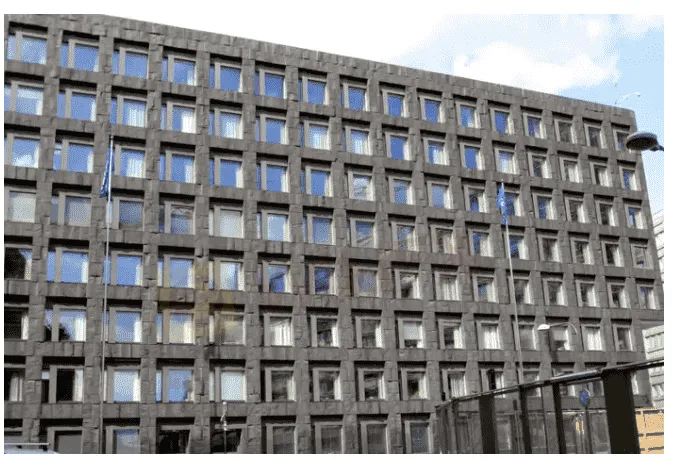简体中文
繁體中文
English
Pусский
日本語
ภาษาไทย
Tiếng Việt
Bahasa Indonesia
Español
हिन्दी
Filippiiniläinen
Français
Deutsch
Português
Türkçe
한국어
العربية
Swedish central bank hikes key interest rate, more to come this year
Abstract:Swedens central bank hiked its key interest rate by 25 basis points to 0.25% on Thursday and flagged further tightening ahead in a radical shift of policy plans sparked by surging inflation.

The Riksbank has been caught by surprise by price rises, which have climbed higher and proved more persistent than it and many other central banks forecast.
As recently as February, the Riksbank had expected price pressures to be short-lived, saying it would not need to hike rates until 2024.
Now the Riksbank sees two or three more rate hikes this year and said it would also allow its balance sheet to shrink this year, another policy shift.
“The Board‘s forecast is that the repo rate will be raised gradually going forward and that it will be somewhat below 2 per cent in three years’ time,” the central bank said in a statement.
Analysts at banking group Nordea said their first impression was that the Riksbank had become “hawkish”.
Russias invasion of Ukraine, which Moscow calls a “special military operation”, has added upward pressure to prices, already on the rise due to the lingering effects of the pandemic, with inflation hitting its highest level in decades.
Inflation ran at 6.1% in March, far above the Riksbanks 2% target.
Some central banks, like the U.S. Federal Reserve and the Bank of England, have started hiking rates. Others, like the European Central Bank, are expected to follow suit.
But there are reasons to be cautious.
The war in Ukraine is clouding growth prospects, inflation is eating away at household purchasing power and higher mortgage costs are likely to hit consumption. Meanwhile, there is little central banks can do about higher energy prices.
It is also far from clear whether there has been a permanent shift in inflation to higher levels. Some analysts believe central banks may relatively soon face problems getting inflation up to target again rather than bringing it down.
The Swedish crown strengthened sharply after the Riksbanks announcement.

Disclaimer:
The views in this article only represent the author's personal views, and do not constitute investment advice on this platform. This platform does not guarantee the accuracy, completeness and timeliness of the information in the article, and will not be liable for any loss caused by the use of or reliance on the information in the article.
Read more

The Hidden Checklist: Five Unconventional Steps to Vet Your Broker
Forex broker scams continue to evolve, employing new tactics to appear credible and mislead unsuspecting traders. Identifying these fraudulent schemes requires vigilance and strategies beyond the usual advice. Here are five effective methods to help traders assess the legitimacy of a forex broker and avoid potential pitfalls.

Doo Financial Obtains Licenses in BVI and Cayman Islands
Doo Financial, a subsidiary of Singapore-based Doo Group, has expanded its regulatory footprint by securing new offshore licenses from the British Virgin Islands Financial Services Commission (BVI FSC) and the Cayman Islands Monetary Authority (CIMA).

CFI’s New Initiative Aims to Promote Transparency in Trading
A new programme has been launched by CFI to address the growing need for transparency and awareness in online trading. Named “Trading Transparency+: Empowering Awareness and Clarity in Trading,” the initiative seeks to combat misinformation and equip individuals with resources to evaluate whether trading aligns with their financial goals and circumstances.

Malaysian-Thai Fraud Syndicate Dismantled, Millions in Losses Reported
The Royal Malaysia Police (PDRM) has received 26 reports concerning the Nicshare and CommonApps investment schemes, both linked to a major fraudulent syndicate led by a Malaysian citizen. The syndicate’s activities came to light following the arrest of its leader by Thai authorities on 16 December.
WikiFX Broker
Latest News
Top 10 Trading Indicators Every Forex Trader Should Know
ASIC Sues Binance Australia Derivatives for Misclassifying Retail Clients
WikiFX Review: Is FxPro Reliable?
Malaysian-Thai Fraud Syndicate Dismantled, Millions in Losses Reported
Trading frauds topped the list of scams in India- Report Reveals
AIMS Broker Review
The Hidden Checklist: Five Unconventional Steps to Vet Your Broker
YAMARKETS' Jingle Bells Christmas Offer!
WikiFX Review: Something You Need to Know About Markets4you
Revolut Leads UK Neobanks in the Digital Banking Revolution
Currency Calculator


